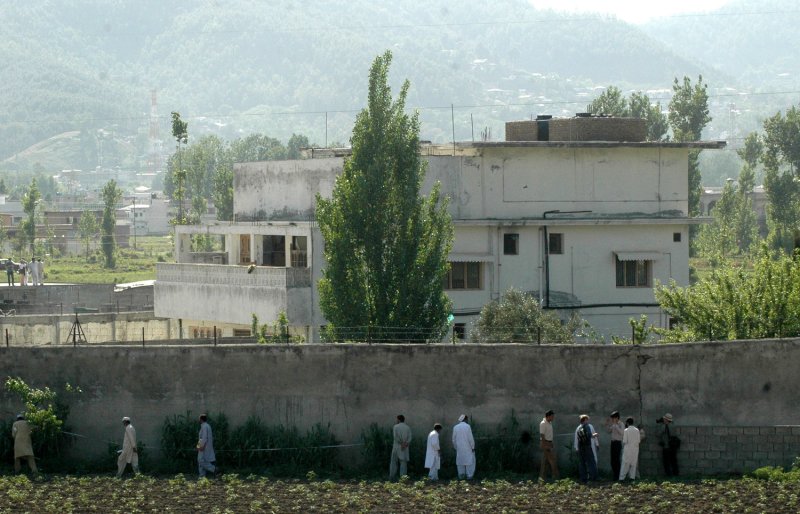1 of 5 | The backside of the million dollar compound where al-Qaida chief Osama bin Laden was hiding is shown surrounded by hills in Abbottabad, Pakistan on May 3, 2011. Osama bin Laden was killed by U.S. special forces in a firefight on May 1, 2011. UPI/Sajjad Ali Qureshi |
License Photo
WASHINGTON, May 4 (UPI) -- Unsolicited e-mails purporting to show photos or videos of Osama bin Laden's killing may contain computer-damaging and identity-stealing viruses, the FBI said.
The malicious software, or "malware," can embed itself in computers and spread to users' contact lists and then -- disguised as the user -- infect the systems of associates, friends and family members, the FBI said.
The viruses are often programmed to steal personally identifiable information, the FBI said in a statement Tuesday.
The FBI told United Press International Wednesday it was "unclear" who was responsible for the hostile software. Spokeswoman Jenny Shearer also told UPI the warning was separate from an Infosecurity report that numerous computer-security vendors identified malicious Web sites popping up when people searched bin Laden's name online.
"The Internet Crime Complaint Center became aware of the malware through complaints it received from the public via its database," Shearer said in an e-mail. "The warnings the cybersecurity companies issued were not taken into account."
The FBI warning came as U.S. officials reported the Navy SEALs who killed bin Laden in Monday's predawn Pakistan raid found a cache of computer data that officials said could be the largest intelligence coup since the Sept. 11, 2001, terrorist attacks.
The FBI warning advised computer users to adjust the privacy settings on social-networking sites "to make it more difficult for people you know and do not know to post content to your page."
"Even a 'friend' can unknowingly pass on multimedia that's actually malicious software," the FBI said.
In addition, do not agree to download software to view videos, the FBI said. These applications can infect your computer.
After killing bin Laden, the SEALs, officially known as the U.S. Naval Special Warfare Development Group, found a cache of data in the bin Laden compound, officials said.
The SEALs carried off five computers, 10 hard drives and more than 100 storage devices, such as DVDs and removable flash drives, along with radios, cellphones, maps, notebooks and books, U.S. officials said.
The haul was brought back to the United States, where it was immediately catalogued and processed, and U.S. intelligence officers subjected it to forensic and fingerprint analysis, the officials said.
A CIA task force already conducted a preliminary analysis of the material for information on the location of bin Laden "lieutenant" Ayman al-Zawahiri, widely expected to become the al-Qaida leader, and information about new plots, names of other terrorists and information about whether Pakistani government members helped conceal bin Laden, The Wall Street Journal reported.
With this new information, al-Qaida communications could pop up on U.S. radar, even if al-Qaida operatives use couriers to avoid detection, so Washington could learn of possible retaliatory attacks, the officials said.
U.S. intelligence agencies believe Zawahiri and other al-Qaida leaders may speed up terror plans to prove al-Qaida's vitality, officials told the Journal.















